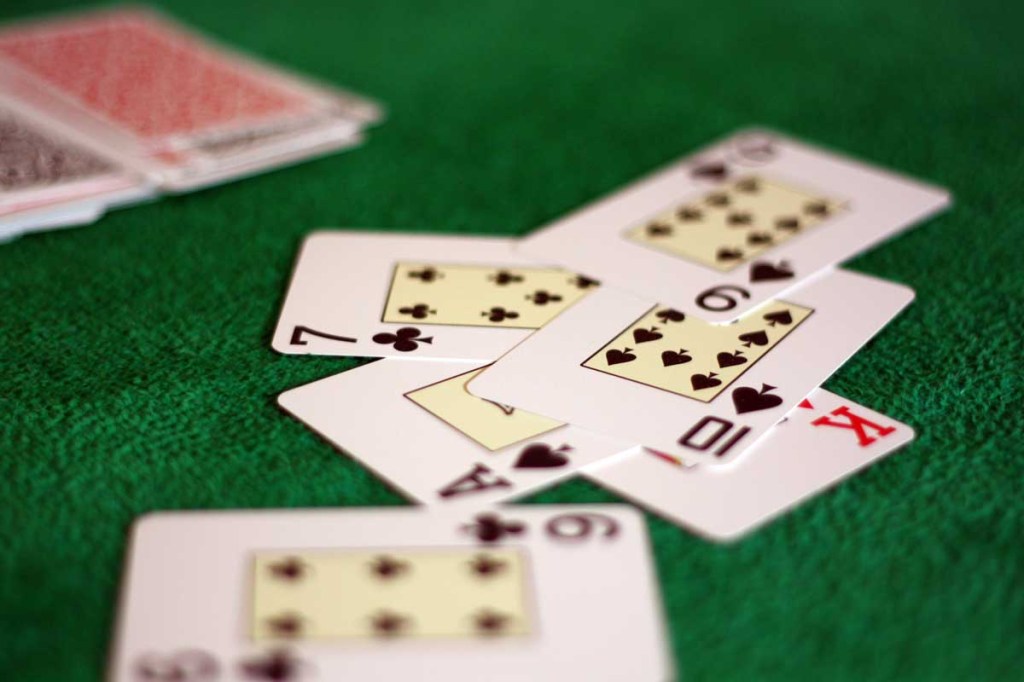Poker pro: Don’t criminalize my livelihood
Published 1:57 pm Sunday, August 10, 2014

- poker-cards.jpg
To a poker pro, it’s brutally obvious that the game is one of skill, not chance. I’ve made my living over the past nine years by having an edge on my opponents. I didn’t somehow get lucky over hundreds of thousands of hands, and I’ve yet to meet a person who thinks I did. Poker is a strategy game, requiring logic, mathematics, psychology and intuition to play well. This statement is hardly debatable — but it was still nice to hear a federal judge agree with it.
In United States v. DiCristina, U.S. District Judge Jack Weinstein ruled last month that poker is a game of skill and therefore not a violation of the Illegal Gambling Business Act (IGBA). The news is unequivocally good for poker players, setting a precedent that other courts may look to. And yet, it’s hardly cause for celebration.
The IGBA was enacted in 1970 to crack down on organized crime. It was never intended to prevent ordinary people from playing poker — the statute does not include the game on its list of gambling activities.
But plenty of state laws do. In New York, where I live, poker is considered gambling; even home games are illegal, if common. The same is true in Maryland, New Jersey and many other states. Just this past week, delegates to the Republican National Convention endorsed a platform that includes support for “the prohibition of gambling over the Internet.”
Against such opposition, Weinstein’s ruling is a narrow victory. It does nothing to reverse anti-poker legislation, nor does it prevent Congress from passing more restrictions. I’m glad that we poker players are not gangsters in the eyes of the IGBA, but the IGBA hasn’t been anywhere close to our biggest impediment.
What is it about poker that makes the game a target of paternalistic laws? It can’t simply be the money at risk — billions of dollars are gambled on Wall Street every day with the enthusiastic support of the federal government. If wagers are legitimate in finance, then they should be okay in a card room. Poker isn’t craps — a game in which, according to the laws of probability, players will always lose in the long run. In poker, there are good bets and bad bets, and players have to figure out which are which.
Wall Street traders assess a company’s stock price and determine whether it’s overvalued or undervalued. A poker player looks at his hand and assesses its value compared with the amount of money in the pot. Price is everything. Just as a stock may be a poor investment at $100 but a steal at $80, a poker hand may be worthless in a small pot but a high-value play in a big one.
Professional traders and professional poker players get paid to analyze risk and reward. In both arenas, good investments routinely turn sour. Losing money is part of the game. This situation is acceptable on Wall Street but not, for some reason, at the poker table.
How can legislators question the element of skill in poker? If the existence of thousands of professional players weren’t evidence enough, one need only observe the game. Every hand is a series of decisions. Some decisions are more profitable than others, and those of us who have spent thousands of hours studying the game are better at making those decisions. Hence, skill.
If you don’t believe me, look at any study that has examined the issue. “Freakonomics” author Steven Levitt published “The Role of Skill Versus Luck in Poker: Evidence From the World Series of Poker” last year with fellow economist Thomas J. Miles. Before the 2010 WSOP, the authors identified a group of players as highly skilled, based on past performance and/or world ranking. They then followed those players’ results in the tournament, finding that the highly skilled group earned a return of 30 percent on their investments, while the rest of the player pool suffered a 15 percent loss.
Could this be a coincidence? The odds against it are astronomical.
Having a court decide whether poker is a game of skill is bizarre to most professionals. Are judges asked whether investment bankers’ jobs are legitimate? Of course not, nor should they be. And neither should players rejoice at a very small piece of bureaucratic validation.
Our government disdains a risk-reward game that millions of Americans play, then bails out Wall Street sharks who bet unfathomable sums. I can only conclude that this contradictory stance has little to do with the skills required for each pursuit. No, for some reason, lawmakers just don’t like poker.
—
Matt Matros, a three-time World Series of Poker winner, is the author of “The Making of a Poker Player.”





